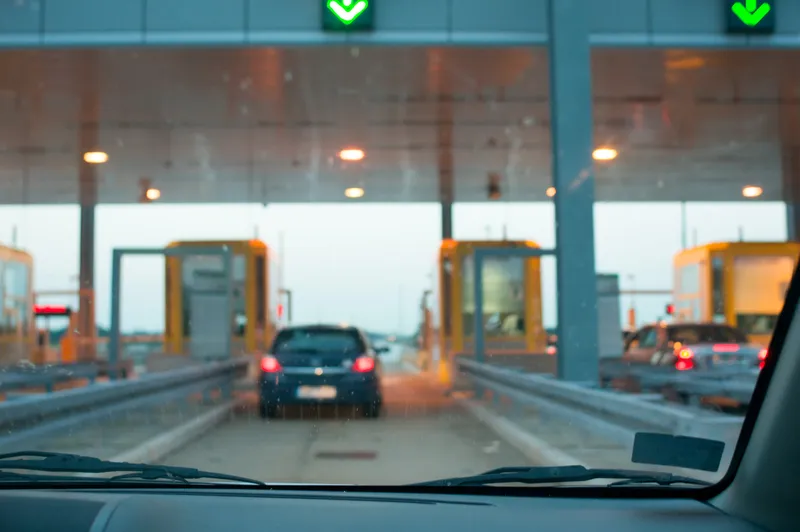New York’s Metropolitan Transportation Authority Bridges & Tunnels (MTA B&T) has selected TransCore to deploy the agency’s first all-electronic tolling (AET) system on the historic Henry Hudson Bridge.
Built in 1936, the iconic bridge provides passage for more than 63,000 vehicles each day. The AET project is part of a three-year, US$33 million MTA B&T bridge rehabilitation project to replace the original 1930s steel supports as well as install 3,600 feet of new bridge decking, new energy-efficient roadw
October 15, 2014
Read time: 2 mins
New York’s 1267 Metropolitan Transportation Authority Bridges & Tunnels (MTA B&T) has selected 139 TransCore to deploy the agency’s first all-electronic tolling (AET) system on the historic Henry Hudson Bridge.
Built in 1936, the iconic bridge provides passage for more than 63,000 vehicles each day. The AET project is part of a three-year, US$33 million MTA B&T bridge rehabilitation project to replace the original 1930s steel supports as well as install 3,600 feet of new bridge decking, new energy-efficient roadway lighting, and wider traffic lanes.
The project aims to provide an efficient, cost-effective, revenue-secure AET system that is flexible, expandable, and adaptable, while increasing driver mobility and safety by eliminating the need for them to slow down or stop at tolling plazas. It will also provide drivers with an accurate, secure, and seamless means to automatically pay tolls and reduce auto emissions and increase fuel consumption.
TransCore will deploy its Infinity digital lane system which integrates automatic vehicle identification, vehicle classification and video capture and recognition systems specifically designed to automatically collect transactions in high-volume traffic across a wide variety of traffic speeds and patterns with the highest degrees of accuracy in the industry. Infinity’s fully integrated digital video audit system also provides MTA B&T auditors with a real-time, user-friendly tool to facilitate true end-to-end revenue traceability and auditability.
“As we begin to utilize AET technology, our key goals remain to increase mobility for our customers while collecting tolls in a highly accurate and auditable manner. Selecting TransCore enables us to achieve these goals through the use of industry-leading toll collection technology,” said Robert Redding, senior director, New Toll Initiatives, MTA Bridges & Tunnels.
“The MTA B&T has long been recognised for their ability to get the most out of their infrastructure investments while providing safe, reliable and efficient passage for the users of their facilities. We are excited to partner with them to implement this state-of-the art project on such a historic facility. Both MTA B&T and TransCore share a common goal to continuously enhance the mobility of our customers through the deployment of innovative solutions,” said Whitt Hall, senior vice president, TransCore.
Built in 1936, the iconic bridge provides passage for more than 63,000 vehicles each day. The AET project is part of a three-year, US$33 million MTA B&T bridge rehabilitation project to replace the original 1930s steel supports as well as install 3,600 feet of new bridge decking, new energy-efficient roadway lighting, and wider traffic lanes.
The project aims to provide an efficient, cost-effective, revenue-secure AET system that is flexible, expandable, and adaptable, while increasing driver mobility and safety by eliminating the need for them to slow down or stop at tolling plazas. It will also provide drivers with an accurate, secure, and seamless means to automatically pay tolls and reduce auto emissions and increase fuel consumption.
TransCore will deploy its Infinity digital lane system which integrates automatic vehicle identification, vehicle classification and video capture and recognition systems specifically designed to automatically collect transactions in high-volume traffic across a wide variety of traffic speeds and patterns with the highest degrees of accuracy in the industry. Infinity’s fully integrated digital video audit system also provides MTA B&T auditors with a real-time, user-friendly tool to facilitate true end-to-end revenue traceability and auditability.
“As we begin to utilize AET technology, our key goals remain to increase mobility for our customers while collecting tolls in a highly accurate and auditable manner. Selecting TransCore enables us to achieve these goals through the use of industry-leading toll collection technology,” said Robert Redding, senior director, New Toll Initiatives, MTA Bridges & Tunnels.
“The MTA B&T has long been recognised for their ability to get the most out of their infrastructure investments while providing safe, reliable and efficient passage for the users of their facilities. We are excited to partner with them to implement this state-of-the art project on such a historic facility. Both MTA B&T and TransCore share a common goal to continuously enhance the mobility of our customers through the deployment of innovative solutions,” said Whitt Hall, senior vice president, TransCore.








